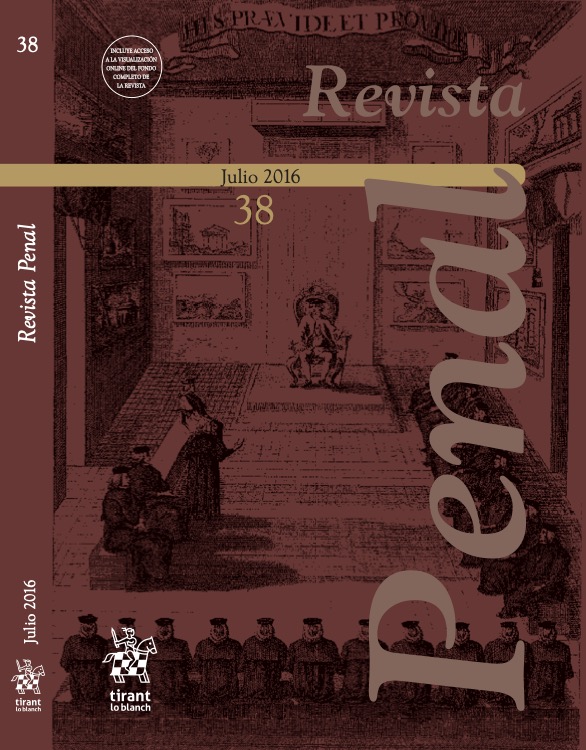Concepto, función y naturaleza jurídica de las consecuencias jurídicas accesorias del delito
DOI:
https://doi.org/10.36151/Palabras clave:
Pena, medidas de seguridad, responsabilidad civil, consecuencias accesorias, nomen iuris, supuesto de hecho y consecuencia jurídica, accesoriedad, persona jurídica, peligrosidad objetiva de la cosa, medidas de policía, potestades ablatorias administrativasResumen
El legislador español introdujo en el Código penal de 1995 un catálogo de consecuencias jurídicas del delito denominadas «accesorias» en línea con lo que ya antes habían hecho otros legisladores europeos, como por ejemplo el alemán. Esta novedad planteó a la doctrina como una cuestión a resolver la relativa a los fundamentos y a la naturaleza jurídica de tales consecuencias, y al respecto se formularon una pluralidad de tesis que las conceptuaron como penas, como medidas de seguridad, como sanciones o medidas diferentes a estas dos pero con naturaleza y fines penales, y finalmente como consecuencias de variada naturaleza —civil, administrativa policial— sin carácter penal ni sancionador. Con la reforma del Código penal operada por la LO 5/2010 las consecuencias accesorias previstas en el art. 129 CP se trasladaron al nuevo art. 33.7 con el nombre de «penas aplicables a las personas jurídicas» añadiéndose a ellas la multa, y en el art. 129 quedaron las mismas con la originaria denominación de consecuencias accesorias y reservadas para su aplicación a entes sin personalidad jurídica. En este artículo, tras una crítica de las tesis que ven en las consecuencias accesorias unas de naturaleza penal, sancionatoria o sui generis pero con significado punitivo, se propone un concepto de las mismas alejado de todo sentido punitivo o sancionatorio, y a partir de dicho concepto se formula la tesis de que a pesar del nomen iuris legal, las llamadas penas aplicables a las personas jurídicas continúan siendo materialmente consecuencias accesorias no penales ni sancionatorias.



